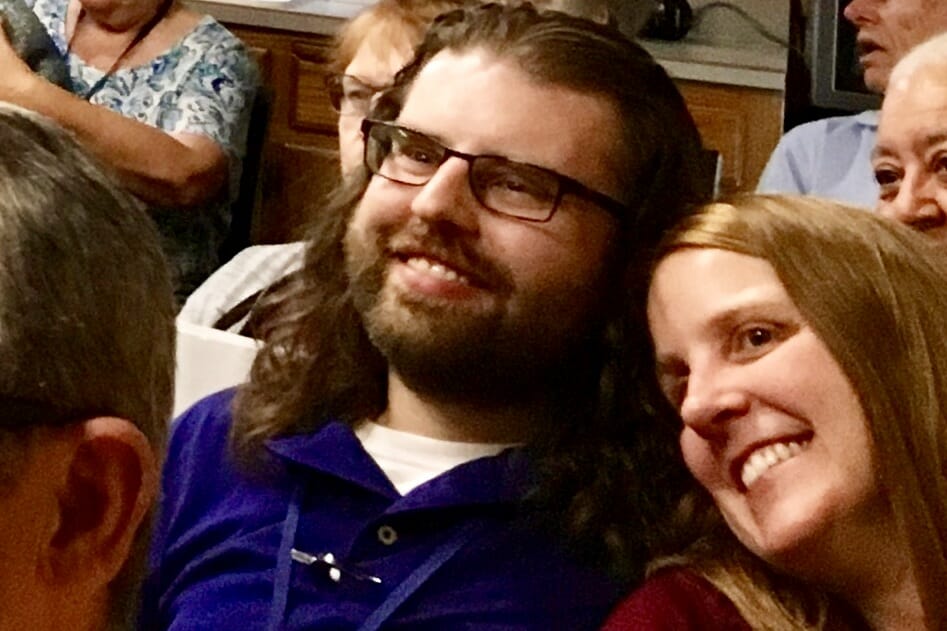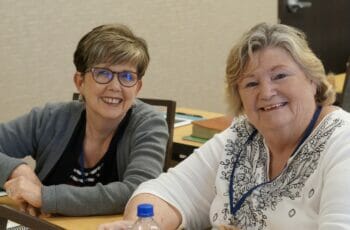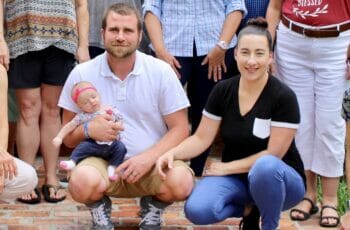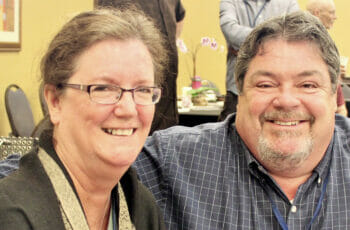In my job I run many different programs, and I have the opportunity to mentor a variety of undergraduate students. And one thing that I do with the students that I work with is, I encourage them to take ownership of some of the outreach activities that I have them helping me to run. In reflecting on putting this teaching together, I realized that the strategy that I use with these students is very much like our theme verse for this weekend, II Timothy 2:2: “And the things that thou hast heard of me among many witnesses, the same commit thou to faithful men who shall be able to teach others also.”
It is the very last part of this verse that I really strive to focus on with them: to be able to teach others also. I want to teach them, whether It’s in working with the volunteers that they are teaching, to go out to the school to do these lessons; or whether it’s in helping each other, because I have two students currently working with me that work together. In order to encourage them to take ownership, I endeavor to clearly start communication as early as they meet me, which is often in the interview stage when they are applying for their position with me.
During the interview process, I challenge them by specifically asking them to take ownership of an elementary school outreach program that we run called Scientific Thinkers. Now, this program sends graduate and undergraduate science and math volunteers out to an inner city elementary school two times a month to do hands-on science lessons. Now, what these students actually do and all of the logistics of coordinating this pretty big project is not nearly as important as the skills and confidence that they gain just by being asked to run a program such as this.
My goal in working with them is to let them know that they have my full support in whatever they do and also to be a role model for them, and this occurs naturally as we see in the book of Acts, organically, just by living life together and being together. They get to see me and the other programs that I run, both successes and failures. I often wonder if the training that they receive from me is of value to them. They are science and engineering students, and I have them doing outreach activities. It’s not necessarily in line with their future career goals. So, what we do is we focus on the softer skills that translate across a variety of disciplines.
Since they are science majors and they have a very full course load and they are still putting in twenty to thirty hours a week working with me, I first teach them time management and priority. I want them to prioritize what they are doing on the job with me. Whether it’s pieces of the outreach program that they are running, or other small tasks that I will hand them to help me run a different program, I also want them to be comfortable telling me, no. If they have too much on their plate, I expect that they tell me: “I’ve got all that I can handle, and if you give me anything else, it’s not going to get done well.” Even though they are only undergraduate student assistants, I also challenge them to see if they could be more effective it they had helped themselves and if they could delegate some of their tasks.
So recently, this fall in this elementary outreach program that we do, there is one day that is a big science event that requires fifty volunteers to go out to the school and do a lot of logistical organization. Now in the past, my student assistant has taken on basically the bulk of the planning for this. This year, we set up a student advisory committee to help them with all the logistical details so that they could take on that more managerial role and get that experience and still get the help that they needed. This naturally built the skill of teamwork. This semester I’ve had the opportunity to witness firsthand the results of the training that has been provided these students.
By operating the principle of teaching others also, we have been able to expand this program. My current student assistant (because she is an undergraduate) will be graduating this spring. I mentioned that I had two students. The second student is the one that was recently hired who will take over by herself in the fall, and I tasked her with mentoring the new student in her entire job. It’s been great to see her growth as she has thrived in this role of being a mentor.
That’s one personal example from my life. But we are here for a weekend of leadership, so how can we utilize what we are learning this weekend to encourage others that we work with in our daily lives to take ownership when it comes to the Word? Well, some strategies that we have is we can clearly communicate early on, we can help them decide what the priority is in organizing an event and delegate or ask for help when that’s needed. We can also encourage each other’s long suits by giving them the freedom and flexibility to come up with creative solutions on their own and taking their creative solutions. So, let’s go out and commit the Word we know to faithful men who shall be able to teach others also.






Responses